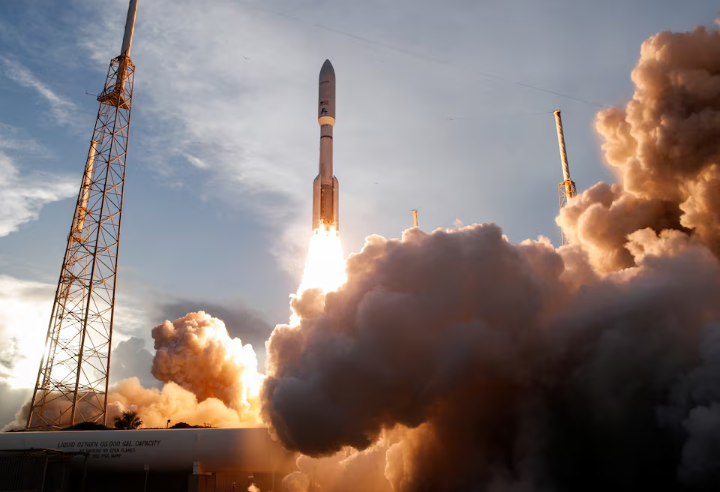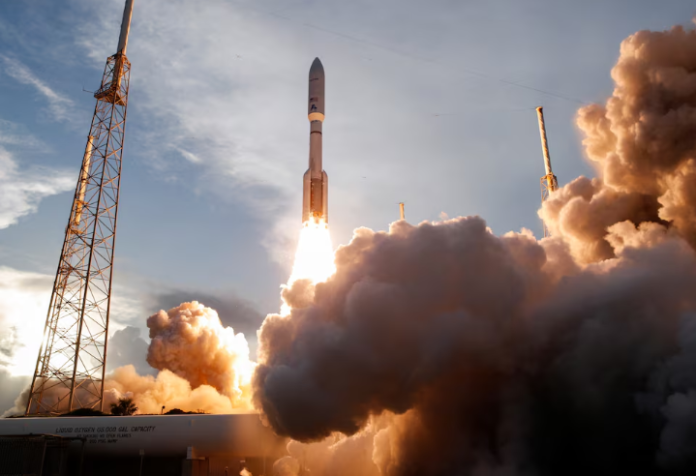Amazon has officially entered the satellite internet arena with the successful launch of its first 27 Kuiper satellites, setting the stage for a fierce competition with Elon Musk’s Starlink. The launch, which took place on April 28 from Cape Canaveral Space Force Station in Florida, marks the beginning of Project Kuiper’s long-awaited journey to bring global broadband connectivity from space.
The satellites were deployed aboard an Atlas V rocket, courtesy of the United Launch Alliance (a joint venture between Boeing and Lockheed Martin). This is the first batch of a planned 3,236 satellites that will orbit the Earth in low-Earth orbit (LEO), as part of Amazon’s ambitious $10 billion effort to deliver high-speed internet to underserved and remote areas around the world.
Originally announced in 2019, Project Kuiper has faced multiple delays, including a missed target to begin launches in early 2024. However, with this successful deployment, Amazon has finally joined the satellite internet race, where Starlink already holds a dominant position with over 8,000 satellites launched and more than 5 million users across 125 countries.
Despite the late start, Amazon is confident in Kuiper’s potential. Jeff Bezos, Amazon’s Executive Chairman, has expressed strong belief in the project, emphasizing that there’s enough demand for multiple players in the satellite internet market. “There’s room for lots of winners,” Bezos said, predicting that both Starlink and Kuiper will thrive in the coming years.
Amazon plans to launch five more Kuiper missions before the end of the year, working toward a critical FCC deadline that requires the company to deploy at least half of its satellite constellation (1,618 satellites) by mid-2026. If they fail to meet this milestone, Amazon may need to request an extension.
Unlike SpaceX, which builds and launches its own satellites, Amazon has secured launch contracts from various providers, including France’s Arianespace and Blue Origin, Jeff Bezos’ own space company. In 2022, Amazon signed the largest commercial launch deal in history, reserving 83 rocket launches to accelerate Kuiper’s deployment.
Project Kuiper’s end-user devices have also been revealed. Customers will use sleek, affordable terminals—one the size of a vinyl record and another similar in size to a Kindle device. Each unit will cost under $400, and Amazon aims to produce tens of millions of them to reach households, businesses, and government clients worldwide.

With Starlink currently setting the pace, launching new satellites weekly, Amazon’s Kuiper faces stiff competition. But the tech giant believes its vast experience in consumer products and cloud services gives it a unique edge. Amazon Web Services (AWS), the company’s cloud division, could potentially integrate seamlessly with Kuiper’s satellite network to offer next-level connectivity.
While Starlink already caters to military and intelligence agencies, Amazon has hinted that Kuiper may serve defense purposes as well, though its primary focus will remain commercial.
The satellite internet race is officially on—and with two of the world’s most powerful tech companies now in the game, the next few years could revolutionize global connectivity.



